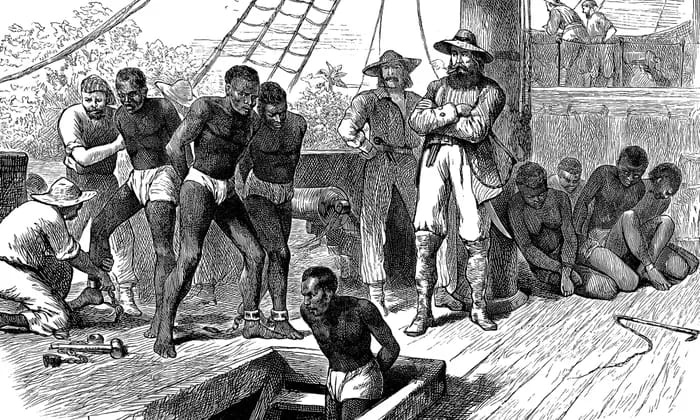
Heirs of Slavery
We are a new group composed of people whose ancestors profited from and supported transatlantic slavery and its many related industries.
It is a history that we have all examined and acknowledged publicly.
There are wrongs in today’s world that derive from the exploitation of African people and their descendants by Britain and other former colonial powers.
We believe it’s important to acknowledge this crime against humanity and address its ongoing consequences.
We wish to support today’s movements seeking apology, dialogue, reconciliation and reparative justice.
We encourage others who have similarly examined their family history to consider how personal charitable donations, according to their means, can help the futures of people in the Caribbean and Britain.
But our main purpose is to lend our voices as heirs of those involved in the business of slavery to support campaigns for institutional and national reparative justice.
- We support the CARICOM nations’ Ten Point Plan for Reparatory Justice.
- We encourage the UK government and other former colonial powers to open a dialogue with CARICOM concerning the plan.
- We welcome initiatives from the Royal Family, the Church of England, the Bank of England and other institutions, private and public, to analyse their role in transatlantic slavery, and their responsibility to the descendants of the enslaved today.
- We support efforts to better inform the British public about the history and ongoing effects of transatlantic slavery.
- We support initiatives by University College London, the universities of Glasgow and Lancaster and others to research the extent and impact of transatlantic slavery.
- We welcome the Dutch government’s recent apology for the Netherlands’ historic role in slavery, and note its establishment of a reparations fund to tackle the legacy of slavery in the Netherlands and its former colonies.
“We cannot change the past. But we can change the consequences” – Professor Sir Geoff Palmer, Windrush-era migrant to Britain, Chancellor of Heriot-Watt University.
Signatories
Richard Atkinson’s paternal ancestors owned or managed numerous sugar estates in Jamaica. Their extensive business interests on the island included a longstanding government contract to hire the labour of up to 400 enslaved men to the British army.
John Dower and Laura Trevelyan are descended from six Trevelyans who in 1835 shared £29,000 as “compensation” for owning 1,004 enslaved people on the island of Grenada.
Charles Gladstone’s three-times great-grandfather John Gladstone owned sugar plantations in Jamaica and what is now Guyana, receiving £106,000 “compensation” at abolition. John’s son William became Prime Minister of Great Britain. As a young MP he spoke in Parliament against abolition and in favour of compensation for slave owners, but by 1850 he had changed his position, describing slavery as “far the foulest crime that taints the history of mankind in any Christian or pagan country”.
Rosemary Harrison’s four-times great-grandfather was Jamaica’s Attorney General in the late eighteenth century. He owned enslaved people as servants.
David Lascelles (Earl of Harewood’s) ancestors built Harewood House in Yorkshire with money made through the sugar trade and the slave trade that supported it. The Lascelles family received £26,309 “compensation” in 1835 after slavery was abolished. Harewood House has been run as an educational charitable trust since 1985.
Alex Renton is descended from owners of enslaved people on both sides of his family. His maternal ancestors, the Fergussons, co-owned plantations and people in Jamaica and Tobago: they shared £3,591 in “compensation” at abolition.
Robin Wedderburn’s ancestor John Wedderburn was a soldier and Assembly member in Jamaica in the late eighteenth/early nineteenth centuries. He owned at least ten plantations and the enslaved people on them.
Please visit www.heirsofslavery.org to contact us, for more information and a list of some educational projects and other charities supported by members of this group.
Advertise with the mоѕt vіѕіtеd nеwѕ ѕіtе іn Antigua!
We offer fully customizable and flexible digital marketing packages.
Contact us at [email protected]

















I wholeheartedly applaud the group with their diligence for raising this issue, a subject that white Europeans and white Americans would prefer not to talk about.
I would keenly like to be part of this movement. If they is a membership please advise accordingly.
I would ask the group to encourage CARICOM head of states to put principles before status and boycott the King’s Coronation.
@Antiguan4ever.
I, as a descendant of slaves am not in favour of reparation. If those people choose to pay for the crimes their forebears committed over 300 years or more against their slaves then I say, ‘Good on You’. I do not hold them personally responsible for those acts, neither should anyone today be held accountable for crimes committed by their forebears over that period. How and why should they be? What puzzles me is why there is no clamour for reparation today from the descendants of African chiefs and kings at the time who were complicit in capturing and selling their very own brethren to the slave masters of Europe and Arabia? Their silence is deafening and it’s All Quiet On The Western Front. Sheer hypocrisy or may be ignorance!
ACTIONS> words
Comments are closed.